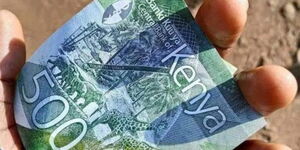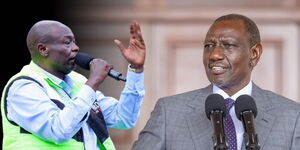The United States President Donald Trump's administration has proposed several reforms to streamline the country's foreign aid policy to align with America's core objectives.
Secretary of State Marco Rubio, who spoke on Tuesday, May 20, said Trump's administration was seeking to implement the frontline diplomacy, granting US embassies in different nations, including Kenya, extra authority to decide foreign programmes to be funded by America.
According to Rubio, by implementing the frontline diplomacy, America, through its embassies, would be able to make more informed decisions by choosing the right foreign programmes to fund.
"I want more of that in the department, and I want to empower embassies to be able to make decisions about which programmes we should be funding, where the money should be going," Rubio said.
"What are the front lines of diplomacy? It is our embassy. It is the men and women who are deployed abroad on the ground who are hearing every single day. And so that’s our number one goal," he added.
Rubio, while appearing before the US Senate Committee on Appropriations, recalled that during one of his trips to the Caribbean nations, the residents there lamented about the US funding non-priority things over urgent and important programmes.
He further stated that foreign aid should be driven from the bottom up, not the top down, where the call for help is initiated by those who need it rather than those who already have it.
During the meeting, Rubio underscored the significance of investing in foreign programmes that are achievable, noting that such assistance would be more meaningful and impactful.
According to him, the best foreign aid is one that ends because it has achieved its purpose. "The best foreign aid is foreign aid where, at some point, that country doesn’t need it anymore, because now they’re self-sufficient," he noted.
While addressing the Senators, Rubio revealed the US government's intention to establish a global health programme account and a consolidated humanitarian assistance account.
"The combination of these two things will allow us to deliver aid as part of the package driven from the ground up," Rubio told the lawmakers.
He went ahead to criticise the United States Agency for International Development (USAID) for failing to adhere to the formal rules and procedures of implementing foreign aid to countries in need.
In particular, Rubio highlighted instances where USAID officials occasionally disagreed with American ambassadors on which programmes to fund and which ones to leave out.
"Then USAID was funding a programme that made the government angry, and so it cut off our ability; now, maybe we still do that, but there has to be a balance here," he reiterated.
His pronouncement comes on the back of Trump's decision to halt all foreign assistance pending assessment of efficiencies and consistency with "America First" policy.
The vocal US leader suspended the aid, including all humanitarian assistance, on January 20, immediately cutting funding for critical US government programmes in foreign nations, including USAID.
The sudden funding cuts impacted several countries across the world, but significantly the developing nations in Africa, such as Kenya, whose supply of critical medicines was affected.












